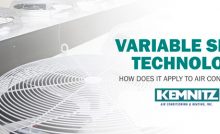Geothermal 101: How Geothermal Operates
Geothermal is a hot topic in the green movement today. Both professionals and homeowners are starting to really take an interest in learning about geothermal cooling and heating technology. However, despite all the new found interest, it really is not a newer technology. In fact, it has been around for decades and has improved significantly. Currently, in the United States alone, over a million geothermal units have been installed in both commercial and residential applications.
How it Works
This type of system works by using the heat that is stored below from the ground surface, and is mostly considered solar energy because the earth does get heated up by the sun, and provides cooling, heating and hot water assistance.
Geothermal Heating
In the heating mode, the ground absorbs the heat and it then gets pumped into your residence. In the earth loop is water circulating which is cooler than the ground surrounding. Because of this, the water absorbs energy, from the earth in a form of heat. Then this energy is carried by the water and pumped into the heat exchanger pump. When in the heat exchanger, the water’s heat energy is absorbed by the refrigerant. Then the water becomes a colder temperature as it leaves the heat exchanger, and circulates and picks up more energy from the earth loop.
The refrigerant gas that is filled with the earth loop energy travels to the compressor from the heat exchanger. The temperature of the refrigerant in the compressor rises to 160 degrees. The heated refrigerant then makes its way to the air heat exchanger. At this point, air is circulated across the air coil by the heat pump’s blower, which then increases the air temperature and is then blown through the ductwork heating the home. Once heat energy is released into the air by the refrigerant, it starts the same cycle all over again.
Geothermal Cooling
In cooling mode, heat is pumped from your residence and releases in the ground. The earth loop water circulation is warmer than the ground surrounding. This results in energy being released from the water, in heat form, into the earth. Hot refrigerant gas that comes from the compressor in the heat exchanger transmits heat into the water. This results in an increase of water temperature, and heat is released into the ground.
Heat energy is released from the refrigerant causing it to become a cool liquid and this liquid begins to travel to the heat exchanger. At this point, warm, humid air is circulated from the heat pump’s blower, and flows across the cool air coil. The home is then cooled from the air being blown from the ductwork. The air coil refrigerant absorbs heat energy from the air, and flows into the compressor. Once this refrigerant is released from the compressor, it starts the whole cycle again in the earth loop heat exchanger.
Geothermal heat pumps are comfortable, durable, safe for the environment, clean and non-allergenic. These pumps require minimal maintenance, and they lower your cooling and heating bills significantly. They provide a great deal of comfort by cooling and heating evenly and getting rid of cold and hot spots. They minimize threats to the environment, since they burn fossil fuels.
For more details call (949) 453-8500 or click here
Recent Posts
How to Combat Mold Issues in Your Commercial HVAC
Mold growth within HVAC systems is a critical concern for commercial buildings, notably in areas…
Debunking Common Myths About Home Heating Systems
As with most other kinds of technology, heating and air conditioning systems have their fair share of…
The Link Between Home Heating and Indoor Humidity
As we brace for the upcoming cooler months, understanding the intricate link between home heating…
How Long Will My New Heat Pump Last?
Your heat pump plays a crucial role in maintaining year-round comfort in your home, effortlessly…
Signs You Need to Switch Commercial HVAC Service Providers
In the ever-evolving commercial landscape, maintaining optimal HVAC system performance is crucial for the comfort…
Keep Your HVAC in Top Form This Fall With This To-Do List
With the autumn season rolling in, local residents are starting to feel the slight chill…







